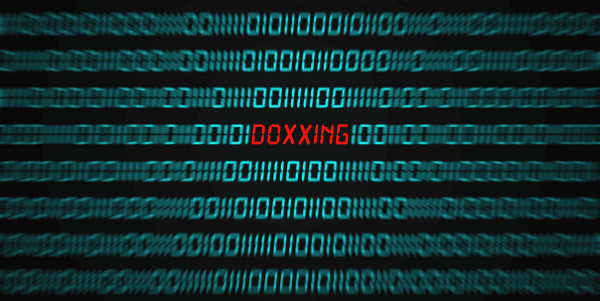-
Team 1
This group was asked to consider and discuss the importance of fostering global cooperation to prevent cybercrime and effective methodologies addressing this issue. They were asked to focus on how prosecutors can work with their international counterparts to ensure successful and strong cybercrime investigations and prosecutions as well as what barriers exist that prevent effective collaboration among international prosecutors. The group offered their recommendations, such as the creation of an internet platform prosecutors working group, an international forum and database for cybercrime prosecutors, and a call for governments to dedicate resources to the institutions that fight cybercrime.
Cybercrime is constantly becoming more sophisticated and neither criminal laws, best practices, nor policies addressing cross-border cybercrime have kept up with it. The territorial and jurisdictional limits of laws can make it more complicated and difficult for investigators and prosecutors to collect data and evidence across borders. Prosecutors, government attorneys, and law enforcement officers must continually adapt to new technologies that criminals are adept at using. Almost all crimes today involve some form of online presence, which means that the importance of fostering global cooperation with effective methodologies to prevent cybercrime has never been greater. Transnational cooperation among prosecutors in different countries is vital to preventing cybercrime and deterring other criminal acts.
The Blue Whale Case
One horrendously tragic case illustrates the dangers of social media and how prosecutors must be part of the conversation to resolve these challenges in an increasingly global society. Forging relationships between police and prosecutors will help in the investigation and prosecution of cybercrime that crosses borders. This case study highlights the dangerous impact cybercriminals have on our society and people worldwide.
The specific case known as the Blue Whale suicide game utilized social media to encourage minors to commit suicide and affected children in various parts of the world. A group administrator was assigned to render daily tasks to group members, which they had to complete over a 50-day period. The tasks were horrendous and included destructive behavior like self-harming, watching horror movies, and waking up at unusual hours. On the 50th day, the controlling manipulators of the social media group reportedly instructed youngsters to then kill themselves.
Moldova was significantly affected by this case—numerous children committed suicide. However, under Moldovan law, it was not clear how the activity should be prosecuted. Improved regulatory action, communication, and collaboration between law enforcement authorities of different countries were necessary. To prevent continued criminal activity and additional suicides, law enforcement forces called upon adults within and outside Moldova to increase vigilance and awareness of the problem, and the Moldovan Parliament raised the issue of tightening controls over the internet and creating a public institution with special skills in this area. Many trainings were held in schools and universities. Although parents and close relatives were the most important factor in preventing adolescent participation in “death groups” and monitoring their online activities, the extensive efforts in schools were still valuable in raising awareness and preventing additional deaths. These efforts helped make children less apt to feel alone and abandoned by those supposed to protect them.
To supplement these preventative measures taking place in schools and by law enforcement, the Prosecutor General’s Office of the Republic of Moldova (PGO) also took steps to engage with representatives from other Moldovan institutions, such as the Ministry of Internal Affairs, the Ministry of Information Technologies and Communications, and representatives from civil society and private companies. These efforts also included service providers, mobile and fixed operators, mass-media, and non-governmental organizations that specialized in child protection and suicide prevention. In order to preserve data and obtain useful information pertaining to this specific online criminal threat, the PGO, in conjunction with United States authorities, worked on Mutual Legal Assistance Treaty (MLAT) requests asking for information on Facebook accounts of several teenagers, including Moldovan citizens who committed suicide as a result of playing this game. At the same time, other MLAT requests were sent to the Russian Federation, requesting account information from the Odnoklasniki platform (a Russian platform) and other Russian websites. Moldovan authorities had very fruitful cooperation with Eurojust, Europol, and Interpol, which ultimately helped to successfully address this matter.
This game had a huge impact on Moldovan society, but it also unfortunately affected people from around the world, reaching minors in the Russian Federation, Ukraine, Romania, Brazil, and India. The game resulted in numerous teenagers dying by suicide. Eventually, in November 2016, Philipp Budeikin was held accountable and arrested in the Russian Federation and was charged with inciting teenagers to suicide. At the time of his arrest, he was only 21 years old and ultimately was sentenced to three years imprisonment. This awful case serves as an example of how social media may be used in harmful ways, but it also serves as an excellent illustration of how, through global, collaborative efforts, effective strategies can be employed in holding offenders accountable by sharing information quickly and ultimately saving lives.
Although the illustrative case resulted in unfortunate casualties, it inspired recommendations and observations to help facilitate improved coordinated efforts among investigators and prosecutors.
Challenges in Using the Mutual Legal Assistance Process
As in the Blue Whale case, prosecutors commonly use the MLAT process, especially in cases with cross border elements. This routinely-used process is available to prosecutors and law enforcement officers who need to obtain evidence and information relating to cybercrime cases from treaty affiliates. MLATs are bi-lateral agreements, and in the United States are processed through the U.S. Department of State and the U.S. Department of Justice. Every country does not have a reciprocal treaty with every other country. For example, with respect to the United States, Algeria, Bermuda, and Columbia do not have an MLAT.
Law enforcement officers around the world report that when it comes to using MLATs to address cybercrime across borders, officers do not know who to contact or to trust and are not sure which language or descriptions to use when requesting information. The officers also report that MLAT requests are not as efficient as they had hoped. Although officers want to use the MLAT process, they are reluctant to do so because the process often is time consuming and will likely delay their investigation.
Reasons for the delays include the requirements that the MLAT process be lawfully conducted and compliant with laws governing the sharing of information between countries. For instance, criminal laws describing probable cause in one country may be very different from the definition of probable cause in the counterpart country. Appropriately, governments balance free speech, privacy rights, and intrusion against the urgent need for critical information. Additionally, law enforcement officers, including prosecutors, need to be properly trained to draft requests that are thorough, accurate, and use appropriate language so that the request is manageable and not overly broad.
In addition to the inconsistency in national laws, there is no current global directory or database to access current contact information for specialists and counterparts around the world to serve as experts both before and during trial or to serve as consultants. There is a dearth of up-to-date training and education for prosecutors to stay abreast of emerging trends in technology, and there are no substantively accurate boilerplate templates for law enforcement officers to use when drafting MLAT requests.
To prevent and prosecute cybercrime, prosecutors and law enforcement officers agree that the highest priority is understanding and working with cutting edge strategies and methodologies. Government agencies often have limited budgets and insufficient funding to stay current with technological advances. One possible solution to increase access to funds would be to identify and solicit grants from other funding sources that will enable prosecutors and law enforcement officials to properly handle their responsibilities. Another option would be for prosecutors and law enforcement to reach out to the research and educational community to help governments keep pace with the quickly changing backdrop of technology.
Prosecutor Internet Platform Working Group
Prosecutors around the world consistently encounter the same fundamental issues when trying to obtain evidence from operators of large, multinational internet platforms. Platform operators routinely decline to publicly disclose the type of data they maintain, the form in which it is maintained, how long it has been maintained, or what data they will provide to investigators or prosecutors. Operators often are slow to respond to requests for data and typically provide little information regarding how long a response will take, if they respond at all.
One potential way to address these issues is the formation of an international working group to represent the interests of prosecutors to the operators of large, multinational internet platforms. The working group could be housed within an established international law enforcement organization and would be composed of representatives from prosecutors around the world. It would be tasked with gathering information from global prosecutors regarding common issues they face and interfacing with platform operators to work towards viable solutions. For example, a working group could push platform operators to create portals for law enforcement that would provide a central repository of information describing how the company handles requests for data, allow prosecutors to submit requests for data, and track the progress of prosecutors’ requests. Although there may be sensitive information that prosecutors or internet platform companies are unwilling to share in this global sphere, it is important to consider creative solutions and start somewhere to address this very problematic issue of obtaining necessary evidentiary information.
A working group could also serve as a means of preventing cybercrime. It would enable prosecutors to unify around common public safety issues and pressure businesses to make changes to their platforms. Prosecutors may, for example, identify a dangerous social media campaign—such as the Blue Whale campaign—and push social media networks to identify and remove related content, or push social media networks to help secure users’ information by turning certain privacy settings on by default.
This type of effort has had success in the recent past. In 2013, in response to a rapid rise in smartphone theft, prosecutors, police, and political officials from the United States and England formed a coalition calling on smartphone manufacturers and software providers to make changes to their products to deter theft. Industry responded, and within the next year Apple, Samsung, Google, and Microsoft introduced a “kill switch,” which enabled cell phones to be disabled remotely. Smartphone theft declined “dramatically” in a single year where the “number of smartphones stolen dropped by 50% in London, 27% in San Francisco and 16% in New York.”[i]
New Legislation and Training
A key issue affecting prosecutors’ ability to enhance global cooperation in preventing and fighting cybercrime is the lack of substantive legislation. Prosecutors and law enforcement agencies around the globe should combine all efforts and apply pressure to implement specific national and international regulations addressing the following topics:
- Facilitating and expediting mutual legal assistance and cooperation
- Obligating Internet Service Providers (ISPs) and other tech companies to appoint national and international points of contact
- Arranging for faster access to online data when seeking evidence
- Enacting specific criminal provisions related to cybercrime, and
- Adapting existing criminal procedures and investigative measures to tackle new types of cybercrime
Creating an international forum and database where designated prosecutors from different countries work on strengthening existing laws and methods and drafting new legislative models would be a major step toward improving the legislative landscape. An existing forum and database that could be used for this purpose is the Global Prosecutors E-crime Network (GPEN), a forum of the International Association of Prosecutors (IAP). This existing network brings together global prosecutors to work on common issues to protect consumers against fraud and other criminal activity, including those committed using the internet.
The call for new cybercrime legislation in each country would certainly be stronger and more convincing if prosecutors could easily point to existing laws and mechanisms in other countries that seem to have resulted in successful prosecutorial outcomes. Examples include new procedural rules to force a suspect to assist in unlocking electronic devices; laws that allow access to online data from a suspect’s device in the country of jurisdiction no matter where the data is actually stored; laws that define new elements of cybercrime; and the exploration of technical and legal aspects of accessing data recorded by artificial intelligence tools like Alexa or Siri.
Another important step to enhance global cooperation is holding more international exchanges and conferences as well as training courses. If investigators and prosecutors have access to cutting edge material and techniques, in addition to having a better understanding of cybercrime, possible investigative measures, and varying international legal systems, they will be able to improve their prosecutions and work proactively to prevent cybercrime. The key to more effective and successful cooperative efforts includes developing personal relationships and building connections among prosecutors throughout the world.
The international community should provide more funding for international conferences and seminars that may be organized by global or national authorities and organizations. Those meetings should include programs like those offered by the National Attorneys General Training and Research Institute and the IAP.
More Resources
Effective implementation of any measures meant to combat cybercrime requires that adequate resources be made available. Whereas some developed countries like the United States and the United Kingdom have committed significant human and financial resources to fight cybercrime, many developing countries in Africa, Asia, Europe, and Latin America have been unable or unwilling to prioritize cybercrime prosecution and commit resources. The transnational nature of cybercrime means that perpetrators are committing crimes across territories and borders, and each government needs to devote adequate resources to law enforcement agencies to counter these cybercriminals.
There are clear disparities in the knowledge levels and available resources among law enforcement agents, prosecutors, and judicial officers. Accordingly, governmental resources should be available to promote uniformity in training and offer training opportunities for the least knowledgeable practitioners. Adequate financial resources also will allow law enforcement agencies to obtain current technological tools and equipment as well as give them the ability to invest in information technology (IT) tools that counter the ever-growing cybercrime wave.
Countries are not similarly situated in terms of available financial means, priorities, and capabilities, but all countries can contribute significantly in other demonstrable ways. In order to overcome the existing resource challenges, countries should consider undertaking the following measures to bridge their resource gaps:
- Make it a government priority to finance criminal justice initiatives that fight cybercrime.
- Invest in public-private partnerships to train practitioners, develop IT tools, and make provisions to acquire technical equipment.
- Improve communication, coordination, and cooperation among law enforcement agents and relevant institutions. Informal channels will especially help countries to cut down on associated costs of investigating and prosecuting these crimes.
- Commit to recovering assets and confiscating proceeds derived from cybercrime. These recovered assets can in turn be obligated to special funds created for the purpose of continuing to address cybercrime issues, such as training and improved investigations and prosecution efforts.
Conclusion
The challenges of combatting global cybercrime are not insurmountable. It just takes sincere commitment. Fostering greater cooperation among international prosecutors can be achieved through a few effective methods, including developing and using informal lines of communication, creating an internet platform working group and an international forum where cybercrime prosecutors can collaborate, and increasing funding from governments or public-private partnerships for IT and international training. Each of these measures would go a long way to address the global problem of cybercrime.
[i] Samuel Gibbs et al., London Smartphone Theft Drops by 50% After ‘kill switch’ Introduction, The Guardian (Feb. 11, 2015), available at https://www.theguardian.com/technology/2015/feb/11/london-smartphone-theft-drops-after-kill-switch-introduction-iphones.





